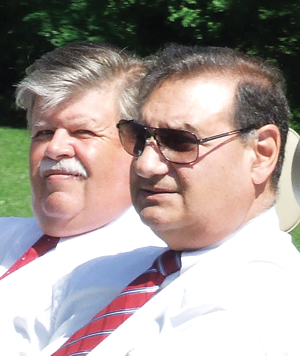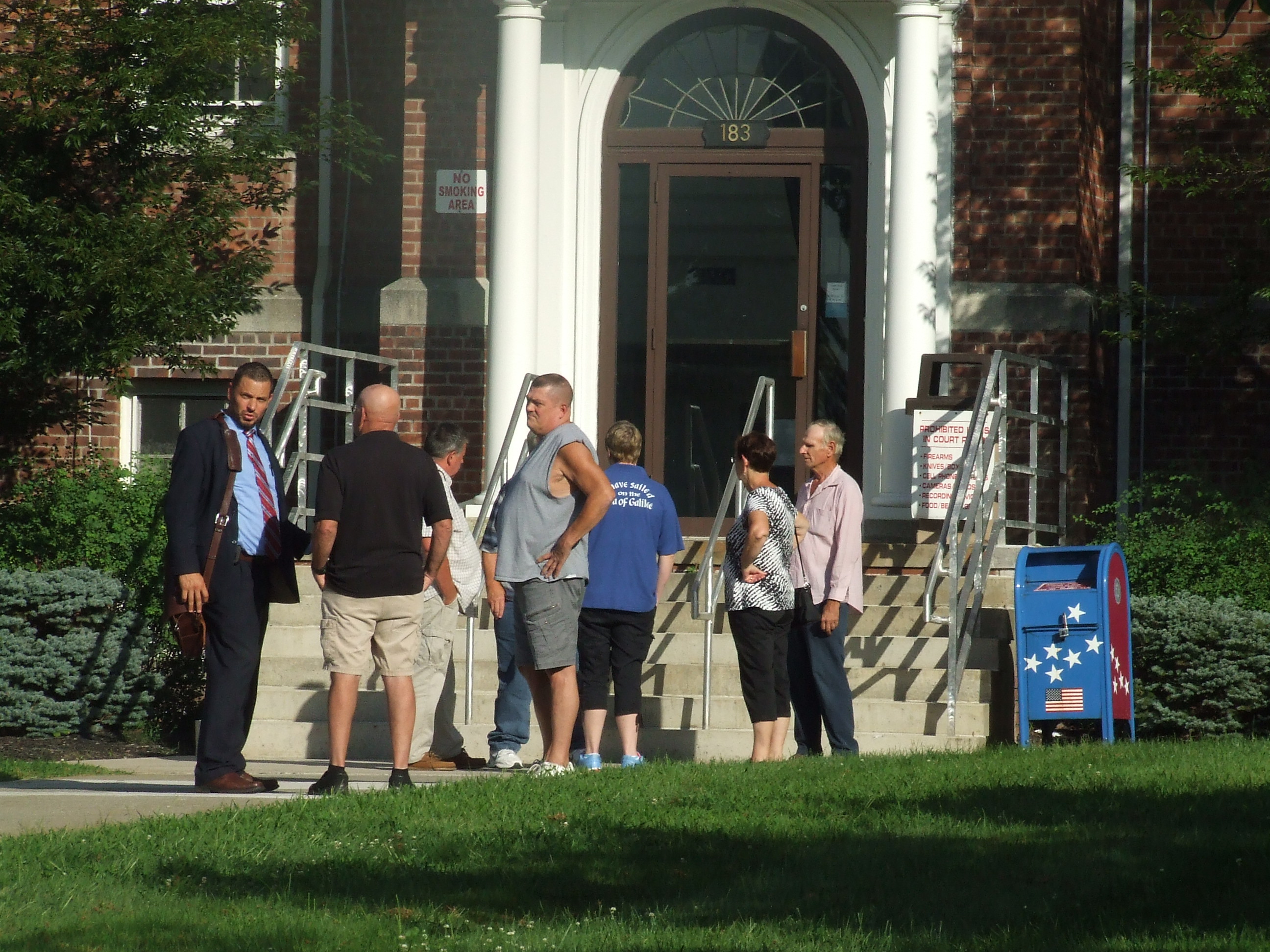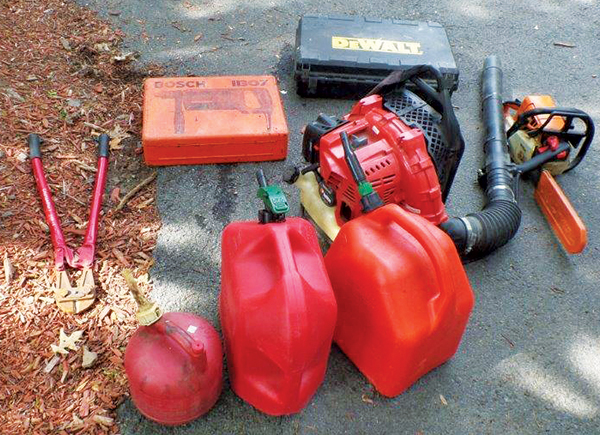
Judges Lynn Beesecker (left) and Frank Navarra ride together in last year’s July 4 parade.
Despite snow-covered streets and periods of blizzard-like conditions, Lynn Beesecker held traffic court last Thursday evening. In his first year as Town of Cornwall court judge, Beesecker rarely canceled court because of the weather. In making that decision, he recalls the actions of a former administrative judge who, with the district attorney, always held court, in Goshen, even if nobody showed up.
“If any litigant showed up to have their case heard, they were entitled to have a judge there to hear it,” Beesecker said. “I lean toward the same thing. If we get people who come through the snow to be there, we should be there to handle their traffic tickets. If they show up, they’re entitled to their day in court rather than come back again.”
Beesecker, a 23-year resident of Cornwall, has been a lawyer for the last 34 years. He’s had a law office on Main Street for over 10 years. After failing to receive the nod, from the town board, to be the interim replacement for the late Joe Thomson, Beesecker earned the position by winning the 2012 election. He was sworn in that year, on Dec. 31, and has just completed the first 12 months of his four-year term.
“As far as I’m concerned it went fairly well,” Beesecker said of his first year. “There were no major surprises as to what the job was. I learned what I needed to learn about criminal procedure. It was a little bit of a learning curve and breaking-in period while the attorneys who regularly appear in court decided who I was and how to deal with me. I’ve been in court a lot of years. It didn’t take long to settle in to the basics of how to handle things.”
Although he has over 30 years of experience handling civil litigation, Beesecker wasn’t familiar with the procedure for criminal cases including time limits and procedural rules, but it didn’t take long to get up to speed.
Dealing with the attorneys and the realities of how court works were not an issue. Even though he was the new guy on the bench, he wasn’t hassled by the attorneys before him because for the most part he knew many of them through work. For the attorneys, it was more of a matter of learning how Beesecker would handle his calendar.
Beesecker holds his court starting at 5 p.m. on Thursday evenings. One week per month he hears criminal cases, the other three are dedicated to traffic, landlord/tenant, municipal violations, and other issues.
In the early going, Beesecker wasn’t alone in his transition to the bench. Veteran judge Francis Navarra offered some perspective on how to handle things, offered trial tips, and even helped explain the differences between criminal and civil trials. A couple of times Navarra sat in on Beesecker’s courtroom to assist if any issues arose and he’s made himself available to answer any procedural or administrative questions.
“Overall, Frank has been great to work with. He’s been very helpful. I don’t remember anything major coming up, but it was nice to know he was there if I had any issues with the procedures or what I needed to do. ”
Navarra offered to take some cases, but Beesecker declined the offer, opting to learn as he went along.
Beesecker was a little nervous his first night of court, but it being a traffic night made things a little easier to handle. The most difficult adjustment was learning how to fill out the proper forms and what information needs to be provided.
As an attorney by day, Beesecker quickly adapted to weekly night court and the possibility of daytime trials. He remains aware of his calendar at all times and only schedules a trial or hearing when he knows he has an opening. In a typical month, Beesecker said he may schedule two or three trials in a week with the rest of the month being quiet. With Navarra he alternates months being on call for arraignments. On any given month Beesecker also expects to be called in at 2 or 3 a.m. for a DWI or domestic dispute.
“It’s what I’m supposed to do, so I get up and go into court. The hardest part is once you’re up it’s hard to go back to sleep. I end up losing another hour of sleep once I get back home.”
By the time Beesecker arrives at Town Hall, it’s usually an hour before he leaves. He has to start the computer, get out paperwork, conduct the hearing, and complete the associated paperwork before closing everything down and locking the building.
Other than the additional hours, there haven’t been any significant changes to Beesecker’s personal life.
“Other than there tends to be a lot more people who recognize me and say hello to me in the supermarket or wherever. It raises your profile inevitably. Part of that starts during the campaign, when you’re trying to raise your profile. It’s a good thing. I enjoy it. I have not had any problems with people coming up to me after the fact to complain about anything.”
As a judge, Beesecker believes he is fair to those who appear before him. Being fair means showing leniency to nudge people in the right direction, as well as being harsh to those who Beesecker thinks will respond better to a “kick in the pants.”
As his second year begins, Beesecker said the job won’t be any easier, but it will be different because he’s more familiar with the cases he’s handling.



